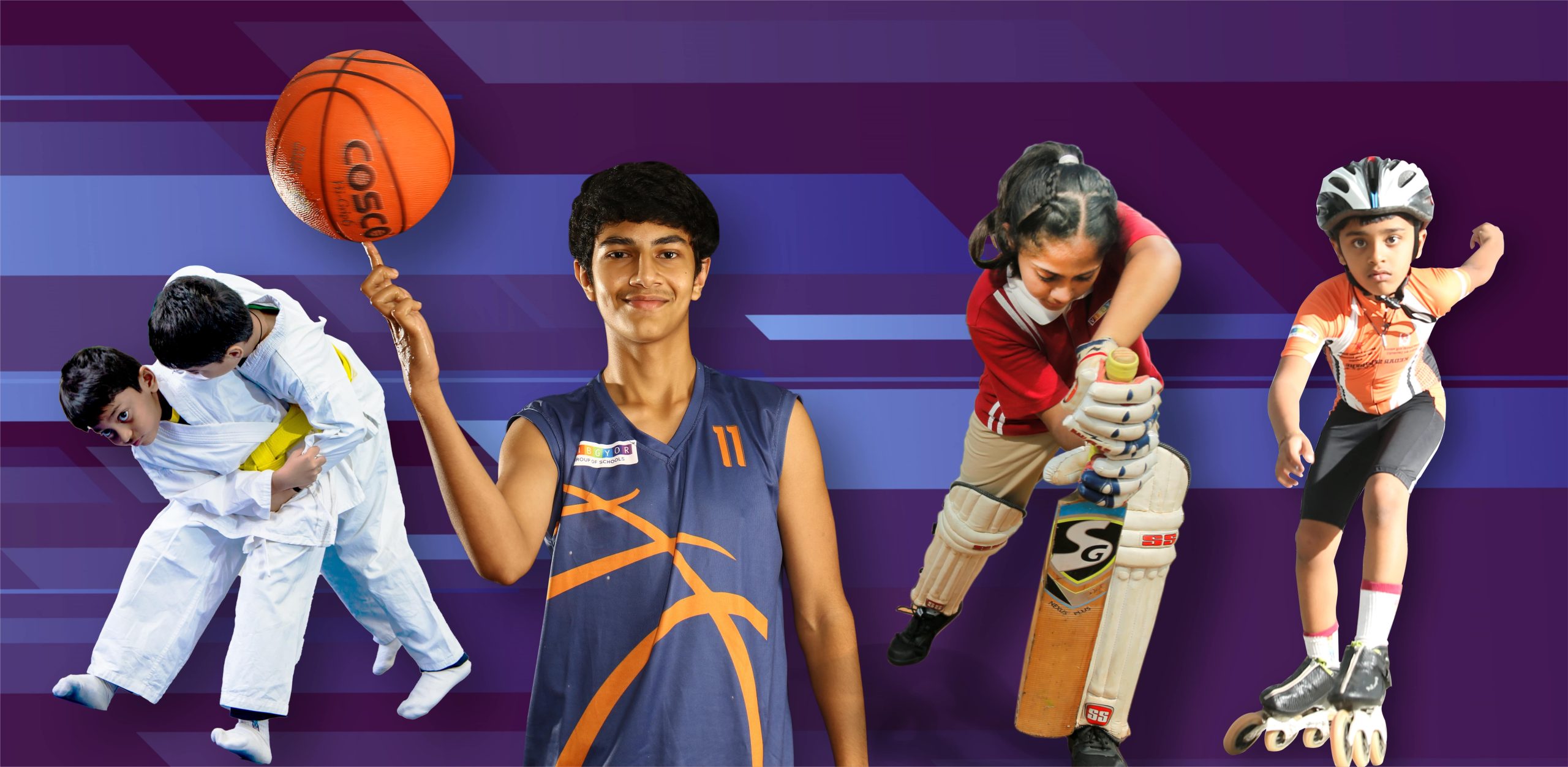![]()
The clamour of excited voices, the rhythmic thud of a ball, and the determined shouts of athletes aren’t mere background noise—they are the symphony of personal growth and development. Sports, often sidelined in favour of academic pursuits, are the unsung heroes of education, crafting resilience, character, and teamwork in ways that textbooks alone cannot.
The influence of ‘sports’ on a student’s growth is profound, enhancing physical health, mental well-being, social skills, and academic performance. Therefore, it is essential to introduce children to a holistic education that includes both indoor and outdoor sports, as well as other extracurricular activities. By doing so, we nurture balanced and thriving individuals equipped for various life challenges.
Educators around the globe are adopting a holistic approach to education that prioritises a student’s overall growth, integrating a robust sports curriculum with in-classroom academic learning. Education institutions are increasingly providing platforms for students to excel in sports and performing arts, enabling them to represent their institutions in inter-school and state-level competitions. This fosters a healthy competitive spirit, helping students develop essential skills such as discipline, teamwork, and perseverance. It also boosts their confidence and self-esteem and offers recognition and opportunities for further growth.
Exposing children to various sports helps in the development of kinesthetic and spatial skills. This helps in identifying the inherent capability of the child in selected sports and provides specialised training in those areas.
Here’s a closer look at how sports play a pivotal role in shaping students’ lives.
Building Resilience and Character
Engaging in sports is more than just physical activity; it’s a rigorous training ground for the mind and character. Students learn the value of perseverance through the highs of victory and the lows of defeat. When a young athlete misses a crucial goal or stumbles at a critical moment, they face a choice: give up or try harder. This decision-making process builds resilience, teaching students to bounce back from setbacks and remain committed to their goals.
Enhancing Social Skills and Teamwork
Sports are a melting pot of social interaction. Whether it’s communicating on the football field, strategising in a basketball game, or supporting a teammate in track and field, students develop essential social skills. They learn how to work effectively within a team, understanding the importance of each role and the power of collective effort. This camaraderie fosters a sense of belonging and teaches the significance of collaboration—skills that are invaluable both inside and outside the classroom.
Promoting Physical and Mental Well-being
In an age where screen time often outweighs physical activity, sports provide a crucial counterbalance. Regular physical activity boosts cardiovascular health, strengthens muscles, and improves coordination. Moreover, the endorphins released during exercise have a profound impact on mental health, reducing stress and anxiety, and enhancing overall mood. For students juggling academic pressures, sports can be a vital outlet for releasing tension and maintaining a healthy balance.
Encouraging Discipline and Time Management
The rigorous schedule of practices, games, and training sessions requires students to master time management. Balancing academics with sports commitments teaches them to prioritise and manage their time efficiently. The discipline gained from adhering to training regimens and meeting team expectations translates into improved study habits and a stronger work ethic. These skills are not only crucial for academic success but also prepare students for the demands of future careers.
Fostering Leadership and Accountability
On the field, students often encounter leadership opportunities, whether as team captains or by taking initiative during a game. These experiences build confidence and teach them how to motivate and inspire their peers. Additionally, being part of a team requires accountability—not just for personal actions but also for contributing to the team’s success. This sense of responsibility fosters maturity and a deeper understanding of how individual actions impact the larger community.
Cultivating Lifelong Habits and Passions
The love for sports cultivated during school years often extends into adulthood, promoting a lifelong commitment to health and fitness. Moreover, the passions and interests developed through sports can influence career choices and recreational activities, enriching students’ lives long after they leave the school environment.
Conclusion: Beyond the Classroom Walls
Sports play an important role in shaping well-rounded individuals. They offer a dynamic environment where students learn critical life skills, forge strong social bonds, and develop a healthy lifestyle. As educators and parents, recognising and supporting the role of sports in a student’s development is essential. The lessons learned on the playing field beyond the classroom walls, are invaluable, contributing to the holistic growth and success of our future leaders. So, next time you see a student rushing to practise or celebrating a game-winning point, remember: they are not just playing a game—they are building their future.
Check out VIBGYOR Group of Schools‘ emphasis on various sports and performing arts activities.
